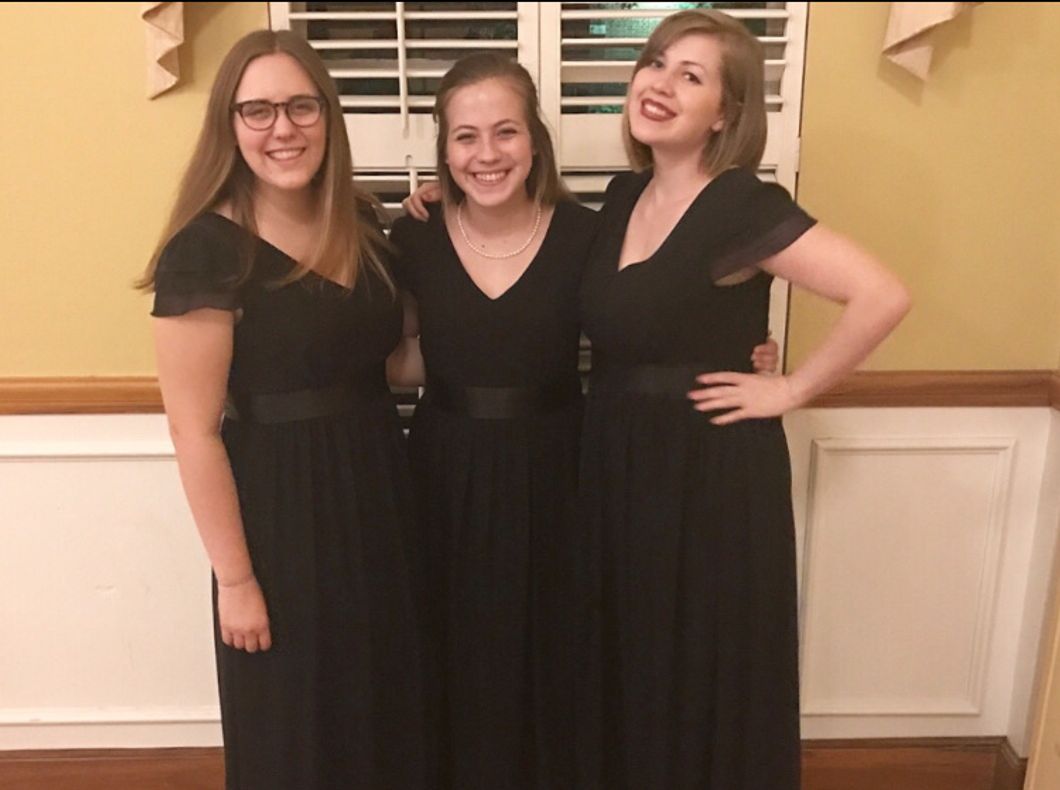Music is good for the body and soul. There are studies that have revealed the effect of singing on critical thinking ability and developing minds, but we hardly need the figures to make us aware of music's significance in our lives.
I have spent nearly a decade of my life singing in the choir on a regular basis. I have identified as a soprano, alto, and even tenor. I have cried over not receiving solos, lost my voice, come home exhausted from six-hour rehearsals, and loved every minute. Beyond the cognitive skills, singing technique, and music theory I learned, I have picked up invaluable insight from my directors and colleagues. Here are seven of the lessons I have collected along the way.
It’s not about you.
One of the first things ensemble singing teaches is the importance of blend. Despite how important you might think you are, a single voice should take no precedence over the others. Sometimes the greatest contribution to the community necessitates keeping our own voices in check.
Strive for excellence, always.
There's always notes that could be tuned, always dynamics that could be stronger, always something that could be better. We are perpetually a work in progress, but we are better than we were yesterday. Despite the unattainability of true perfection, the countless hours spent at work always pay off when the music hits the stage.
Come prepared.
When you don't arrive to rehearsal with the music learned, your unpreparedness affects the whole choir. Showing up with proper materials, ready to work is a skill that follows you far beyond the choir room, and as of yet, I have never been in a circumstance where I haven't been happy to have my pencil and water bottle.
You don’t have to give up your individuality to be part of a whole.
One concept that has stuck with me from the moment my university choir director uttered the words is "uniformity, not conformity." Every singer has a unique voice, and blending together doesn't mean we give up what makes us special. Our collective sound is all the more vibrant for it.
We achieve the most when we come together.
A single soprano may sound beautiful, but a lone voice cannot create the rich harmony and texture of the ensemble. It's the many layers of combined parts that make choral music. You are limited in what you can do on your own, but when we combine our talents we can build so much more.
Listen more.
"Sing less, listen more," is a phrase nearly every choir singer is familiar with. We have nothing to lose and everything to gain by listening to the voices of those around us. Our fellow community members always have wisdom and skills that we lack, and we can only progress as people when we take them into account.
Make new mistakes every time.
"The fool makes the same mistake twice; the wise man makes a new one." This is another truism from my university choir director. When we slip up, it gives us the opportunity to address our shortcomings and change them. Making mistakes is an essential part of growing and learning, but it doesn't define us — it lays the foundation for a better future.
Choir musicians are a special type of people, and our directors seem to see the world through a different lens. Whether you have spent a day in the choir or a lifetime, it's impossible to deny the value of the wisdom you receive from a community of musicians. In the words of composer John Rutter, "Choral music is not one of life's frills. It's something that goes to the very heart of our humanity, our sense of community, and our souls." There is not a chorister nor listener in the world who has not been moved by the music of a chorus of voices, and I will always carry with me the wisdom I gathered while singing.






















